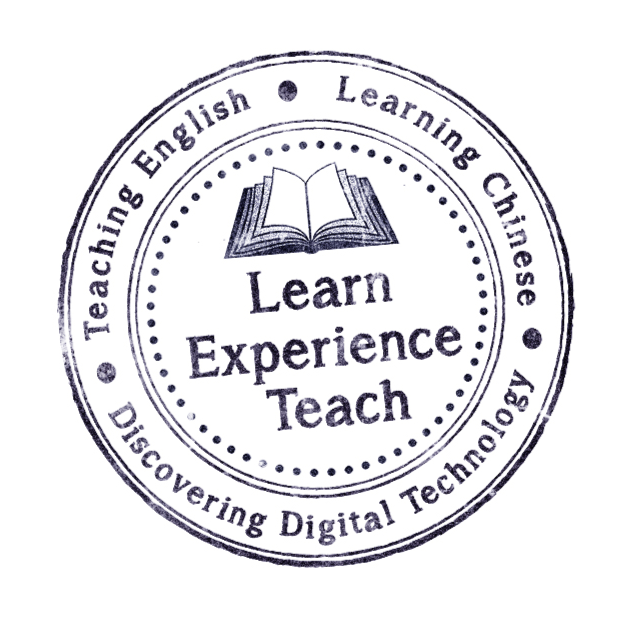In this interview I chat about learning and teaching with Brendan Ternus, awesome team member of Beijing-based experimental learning centre Armada Education. Listen to the audio to know more about Brendan’s:
– learning and teaching background
– participation in an alternative learning camp for public schoolers
– experience of volunteering as a Teaching Artist
– decision to join a multi-generational team at an experimental learning centre
– explanation of Armada’s Cultivating Creators concept
– History Forest project and other experiments
– expectations for innovative education solutions in China
Learning to Learn
A lot of what Brendan had to say about teaching and learning, or indeed, mentoring, as he would put it, really resonates with me. Especially his excitement about, “how rich and exciting education can be, when the children are choosing to be part of an educational experience.” Indeed, making learners aware of the learning process, giving them ownership and responsibility over how, what and when they learn, is one of the pillars of Armada’s innovative learning system. This attitude mirrors Rahman et al’s (2010) work which combined the roles of teacher and learners to ‘co-construct’ a framework on how to develop expert learners. In fact, learning how to learn underscores all of Armada’s initiatives, where an emphasis on being “active as opposed to passive in terms of receiveing knowledge”, allows participants to process information in a deep and meaningful way, propelling all involved towards becoming expert learners.
Cultivating Creators
Brendan believes that “the environments we rely on to prepare kids for the real world are not adequate (anymore).” In response, the Cultivating Creators concept was born, combining entrepreneurship, big picture capacity and complex communication in order to develop lifelong learners. This reminds me of another research study I recently read about raising students’ awareness in language learning, which concluded that ‘the development of metacognitive awareness in the learner, or knowledge about learning, is of vital importance in enhancing language learning efficiency’ (Rinkeviciene and Zdanyte, 2002). Despite being related to language learning, I think there is considerable cross-over to all subjects, where the over-arching goal of modern-day teachers is to equip our learners with the global skills so highly desired by employers today.
Thinking Outside of the Box
The History Forest project is an example of an Armada experiment which allows learners to ‘plan, set goals, organise and self-evaluate’, the key stages emphasised by Zimmerman (2000), as critical for expert learners to learn effectively in their learning process. Brendan confirms that at Armada “thinking outside of the box, in terms of the traditional classroom top-down model” is encouraged. Coupled with tasks that are “interdisciplinary” and “hands-on”, both cognitive and metacognitive strategies are employed simultaneously, engaging learners through “problem-solving and doing real things.”
Fostering Collaborative Learning
“We have grown a lot partially through our failures, as we would try and encourage our learners to do”, admits Brendan. However, one idea that seems bound for success is Armada’s “toolbox of educational methods” which include real-world learning, travel learning and product-oriented learning. This educational methodology can be applied to any subject the learner is interested in, and means that Armada’s Mentors are as engaged in the process as the learners, fostering collaborative learning. I love the idea of sharing experiences to create a holistic learning environment and previously wrote as such in a post about my own Personal Learning Environment (PLE) Here I boldly stated, “I believe that I learn every day from everyone I come into contact with, everything I see, and do!”
Gaining 21st Century Skills
In 2008, the UK’s Development of Education Research Centre outlined the key elements for global skills:
– An ability to communicate with people from a range of social and cultural backgrounds
– An ability to work within teams of people from a range of backgrounds and other countries
– Openness to a range of voices and perspectives from around the world
– Willingness to resolve problems and seek solutions
– Recognition and understanding of the impact of global forces on people’s lives
– Willingness to play an active role in society at local, natural and international level
Indeed, Brendan contends that a lack of specialist academic options prevents learners from gaining the 21st centrury skills future employers will demand, “we see Education as an area in China that lots and lots of parents are very invested in, but there are not that many innovative solutions coming along, to match the really remarkable growth innovation that’s happening in other industries.” In this way Armada have spied an opportunity to profoundly upskill their learners, and will do very well if they can prove themselves here in China. By cultivating innovative engagement, curating critical and creative thinking, and inspiring lifelong learning, Brendan and his team are part of a growing number of international innovators that are positively re-shaping education, and the world, as we know it.
References
Rahman, S., Mahmud, Z., Yassin, S.F.M., Amir, S., Ilias, K., (2010), The Development of Expert Learners in the Classroom, Contemporary Issues in Education Research, Vol 3:6
Rinkeviciene, I., Zdanyte, J., (2002), Raising Students’ Awareness in Language Learning, Studies About Languages, Vol 3
